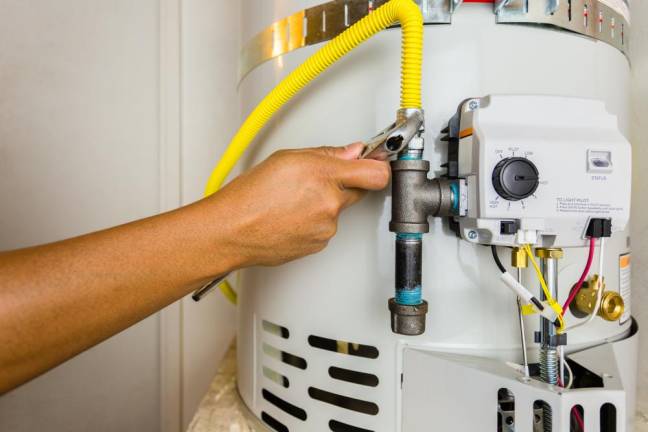A traditional tank water heater will last about 8 to 12 years. Understanding how a hot water heater works and performing regular maintenance can maximize its life span.
Here are some tips to keep get the most out of your water heater.
How it Works
Hot water tanks have an anode rod, usually made from magnesium, aluminum, or an aluminum/zinc alloy. Through electrolysis, the rod attracts corrosive particles in the water to itself, which corrodes the rod. Eventually the rod is no longer effective and corrosive particles destroy the lining of the tank, which causes it to need replacement. Replacing the rod before it fails — usually in about five years — can double the life of your water heater, according to FamilyHandyman.com. To find out the condition of your anode rod and decide if it needs to be replaced, check the rod every one to two years.
When buying a new anode rod, keep the following tips from FamilyHandman.com in mind.
• A magnesium rod protects your tank better but doesn’t last as long as an aluminum/ zinc rod.
• Aluminum/zinc rods are cheaper and are recommended if your water has an odor, but you should consult a water treatment specialist before switching to an aluminum rod.
Routine Maintenance
The following routine maintenance tasks will help keep your water heater in working order. Check your heater’s user manual for the steps to perform these maintenance tasks and how often they should be done.
• Check the pressure valve to be sure it’s still functional.
• Flush the water tank to get rid of sediment buildup. (A water heater’s warranty usually requires that you do this annually to maintain coverage.)
When to Replace
BobVila.com offers the following list of ways to know when your water heater needs to be replaced.
• A banging or rumbling noise, which can be caused by hardened calcium buildup from hard water.
• An odd smell in hot water. This could be caused by bacteria or metal contaminating the water.
• A red or yellow tint to hot water, which can signal rust.
• A drop in water temperature or heating capacity can be caused by sediment buildup, which can require replacement if it goes unchecked for too long.
• Water pooling around the base of a water heater tank. If it’s not a simple fitting or valve problem, the inside of the tank could be cracked or corroded.
